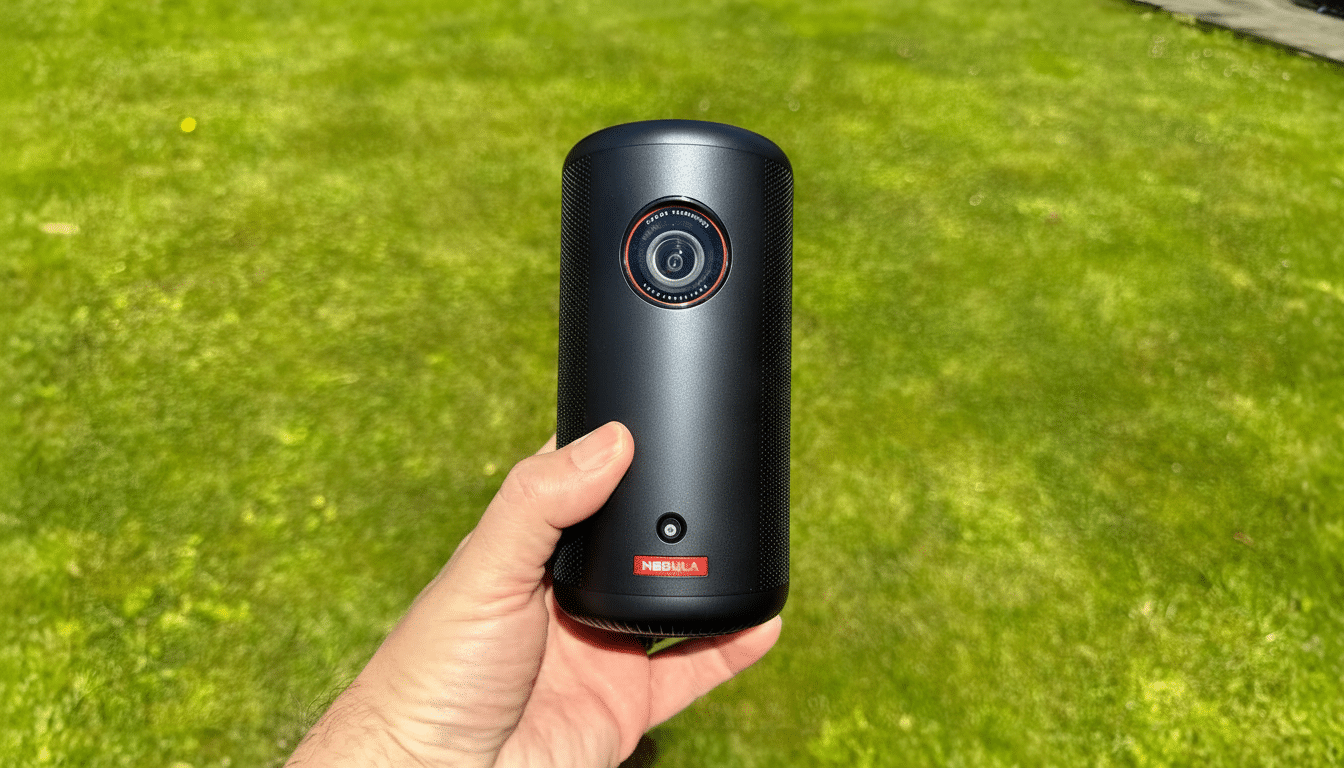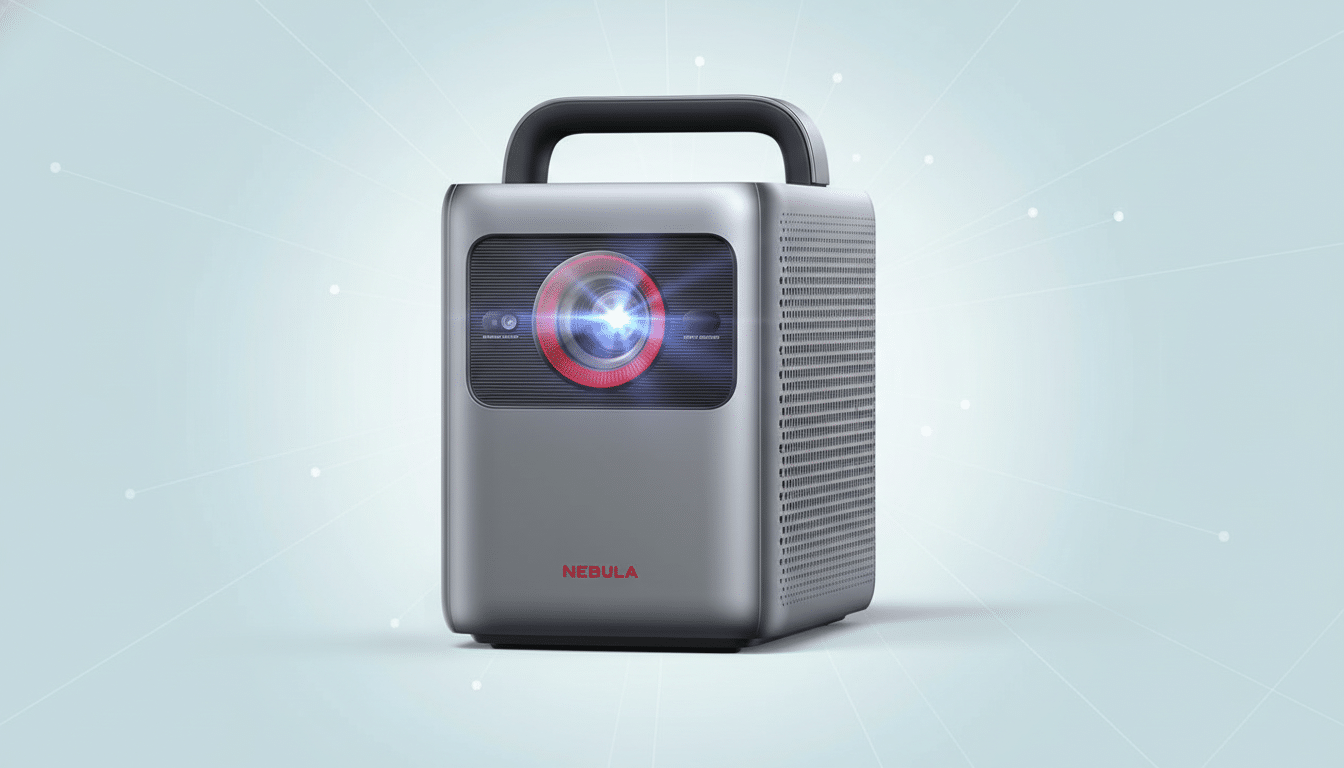Prime Big Deal Days are in the final 24 hours, and projectors lead some of the deepest tech discounts left — up to a whopping $955 off. If you’ve been mulling a move to big-screen life for movies, sports, or gaming, this is one of those infrequent windows when both portable LED models and bright 4K laser units alike become impulse-buy territory.
Headline-grabbing deals range from battery-driven minis you could throw in a backpack to living room lasers rumored to best midrange TVs on size and punch. You can expect substantial discounts on big names like Anker Nebula, Xgimi, Epson, Optoma, ViewSonic, Dangbei, and Hisense — from 1080p travel buddies to short-throw gaming rigs and premium 4K laser options.
- Why These Prices Matter for Projector Shoppers Today
- Standout projector deals you should not miss today
- How to match the projector to your room and setup
- The specs that actually matter for projector buyers
- A quick reality check on 4K projection and pixels
- How to lock in a real Prime Day projector deal
- Bottom line on the best remaining projector deals

Why These Prices Matter for Projector Shoppers Today
Projectors aren’t subject to TV-type pricing breaks on a weekly basis. Laser light engines need to be replaced on average every 20,000 to 30,000 hours and have been quite expensive up until now; legacy lamp models further incur a running bulb bill for the life of the projector that can also top out between $200–$400. With the lasers and high-brightness 4K units dropping several hundred at a time, the comparative value proposition shifts quickly.
Industry trackers like Futuresource Consulting and the Consumer Technology Association have noted sustained interest in viewing on large screens at home, particularly with sports and gaming. But a lot of buyers are counting on event pricing to cross that mental divide between “nice to have” and “no brainer.” Today is that moment.
Standout projector deals you should not miss today
Portable laser and LED models like the Anker Nebula Capsule 3 Laser and Xgimi’s diminutive Elfin series are getting big discounts, so that on-the-go movie nights become effortless: auto-focus, auto-keystone correction, integrated streaming — you’re on your way in minutes.
These aren’t for bright, sunlit rooms — but they’re great in the dark or when lights are dimmed.
For a living room centerpiece, go 4K or go home. Among the big-ticket discounts are Dangbei’s DBOX02 and Anker’s Nebula Cosmos Laser 4K, with the latter knocking up to $955 off, depending on configuration. If what you’re after is 100–120 inches of sharp image and candy-whistle audio, without the hassle of external speakers or streaming sticks, these all-in-one models just hit sweeter.
Those interested in gaming should look at short-throw digital light processing models like Optoma’s UHD35STx, which can fill a large screen from the length of a coffee table and will generally have low-latency modes. Epson’s Home Cinema 2350 is also aimed right at the console crowd with its 4K enhancement and high refresh support, along with Android TV built in, while ViewSonic’s high-lumen laser models and Hisense’s triple-laser portables expand color coverage and punch through ambient light even better than older LED portables.
How to match the projector to your room and setup
Brightness first. On a 120-inch, 1.0-gain screen in that price range, assume something like 1,800 to 2,500 ANSI lumens if you want to keep sports and TV lively with a little light on; for movie night in the darkened room at home you can’t go wrong at 500 or more. Just keep in mind that “LED lumens” and “ISO lumens” aren’t apples-to-apples measurements — ANSI is still the most transparent, as objective databases such as ProjectorCentral point out.
That throw ratio means more than you know. We’re looking for about a 1.1 throw ratio to fill a 100-inch (16:9 aspect ratio, approximately 87 inches wide) image size from eight feet away. Short-throw models can handle similar sizes from three to five feet, a good fit for apartments and multipurpose rooms. (Note that ultra-short-throw “laser TV” designs are an exception; few of today’s steepest discounts are on laser models designed to be installed right next to the wall.)

The specs that actually matter for projector buyers
Pay attention to claims of ANSI lumens, usable contrast, and color coverage with references like DCI-P3 or BT.2020 percentages. Triple-laser systems can exceed single-laser and LED models in color volume, though calibration is still critical for final accuracy. HDR is powered by HDR10 for the baseline; HLG support means help with broadcast sports.
For gamers, input lag and refresh take precedence. Lots of current projectors will advertise 16ms to 28ms “game modes” for 1080p/120Hz; look around the small print on 4K/60Hz. Most projectors don’t yet offer HDMI 2.1, but a model that has eARC over HDMI 2.0b can help simplify audio to a soundbar or AVR. Auto focus, intelligent screen fit, and 3D geometric correction are all useful features to have, but don’t get too gung-ho with keystone correction options — they cut away at usable resolution.
A quick reality check on 4K projection and pixels
For the most part, any sub-$2,000 4K DLP model utilizes Texas Instruments’ XPR pixel-shifting to put all 8.3 million addressed pixels on screen.
True 4K panels can be found at higher price points, but well-implemented pixel shifting is razor sharp from the typical seating distances. The UHD Alliance and SMPTE guidelines for viewing angles propose that at 10–12 ft from a 100–120 in screen, perceived detail is primarily controlled by contrast, lens quality, and processing rather than panel class.
How to lock in a real Prime Day projector deal
Check the sale price against its 90-day history on price trackers like Camelcamelcamel or Keepa to avoid “fake MSRP” traps.
Verify return windows and restocking policies, and skim owner forums for noise levels and fan profiles — little boxes can get noisy in high-brightness modes.
If streaming is a priority, confirm the platform you prefer is fully licensed; certain models limit full Netflix or Dolby Vision app support to a streaming stick. Lastly, budget the screen: A cheap matte white 1.0-gain fabric will clobber a bare wall, while an ambient light screen can make the difference in finding daytime use practical.
Bottom line on the best remaining projector deals
This is the last window to score Prime Day projector bargains, with discounts topping out around $955 on high-end 4K lasers and deep price cuts on portable crowd-pleasers. Choose brightness to suit your room, check the throw (and input lag) will work for your setup, and bag the model that fits your space before these discounts disappear.

